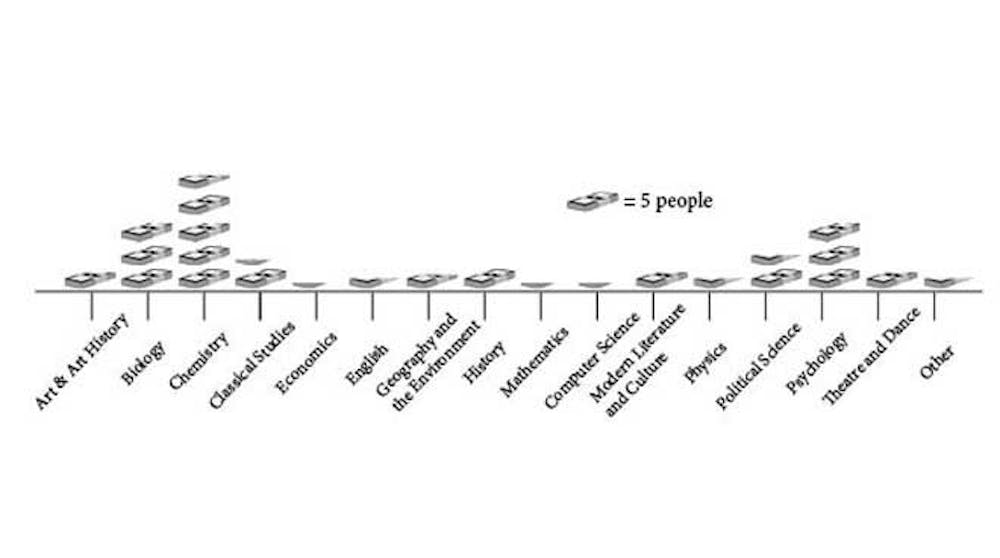The University of Richmond gave about $350,000 to 217 students to conduct research during summer 2011.
Kathy Hoke, associate dean for research support, said most of the research this summer had been done in the sciences, but that there were 50 students doing research in other areas such as history and art.
"The amount of money granted has pretty much tripled in the nine years that I have been here," Hoke said.
Biology professor John Hayden, who often mentors students during the summer, said the success rate was pretty high for students receiving grants at Richmond.
Senior biology major Louis Desantis proposed a plan to work with Hayden on researching botanical life. As Desantis said, "I was paid to pick flowers all summer."
Desantis' research did not just include picking flowers, but also cataloging and identifying nearly 400 different species of flowers.
"I felt that this was a great opportunity to see if I was interested in taking a career path in biology," Desantis said.
Desantis was granted $4,000 for his 10 weeks of summer research and $500 for expenses such as gas and science supplies.
Hayden said Desantis had been excited and eager to get involved, and that his work was unique because he had worked in the field rather than in a laboratory -- where many Richmond students tend to do their summer research.
Unlike Desantis, senior Helen Yanta received a summer grant to work in the chemistry lab with a specific enzyme to see how it is integrated and regulated in the metabolism.
Yanta, who is majoring in biochemistry, molecular biology and Spanish, said that she originally had not thought she would be interested in research, but ultimately decided it wouldn't hurt to try. She said she ended up benefiting from her work.
"It is a good way to find out if you want to continue doing research and if it fits you," Yanta said. "It takes a certain person. It is a very tedious job."
Enjoy what you're reading?
Signup for our newsletter
Chemistry professor Ellis Bell, who was Yanta's research adviser, said Yanta was an exception to the research program because she started much later than most other science students. She said that Yanta's research would be published in one of the six papers that the science department was working on now.
Bell commended Richmond's commitment to undergraduate research and said that it was unusual to have such a good undergraduate research program.
"There are not many institutions that have the resources like the University of Richmond does," Bell said.
After completing her summer research, Yanta said she had realized that she wanted to continue doing research until she graduated, but that after college she wanted to go to medical school rather than work in a lab.
Although both students worked in different settings, both urged other science students to consider doing summer research because it allowed them opportunities outside their research.
"I took advantage as best I could of my summer here and got to know the city much better," Yanta said.
Desantis said he wished he had started doing research several summers earlier.
"I was never paid as much for doing something that I enjoyed as much," Desantis said.
Contact reporter Catherine Crystal at catherine.crystal@richmond.edu
Support independent student media
You can make a tax-deductible donation by clicking the button below, which takes you to our secure PayPal account. The page is set up to receive contributions in whatever amount you designate. We look forward to using the money we raise to further our mission of providing honest and accurate information to students, faculty, staff, alumni and others in the general public.
Donate Now



